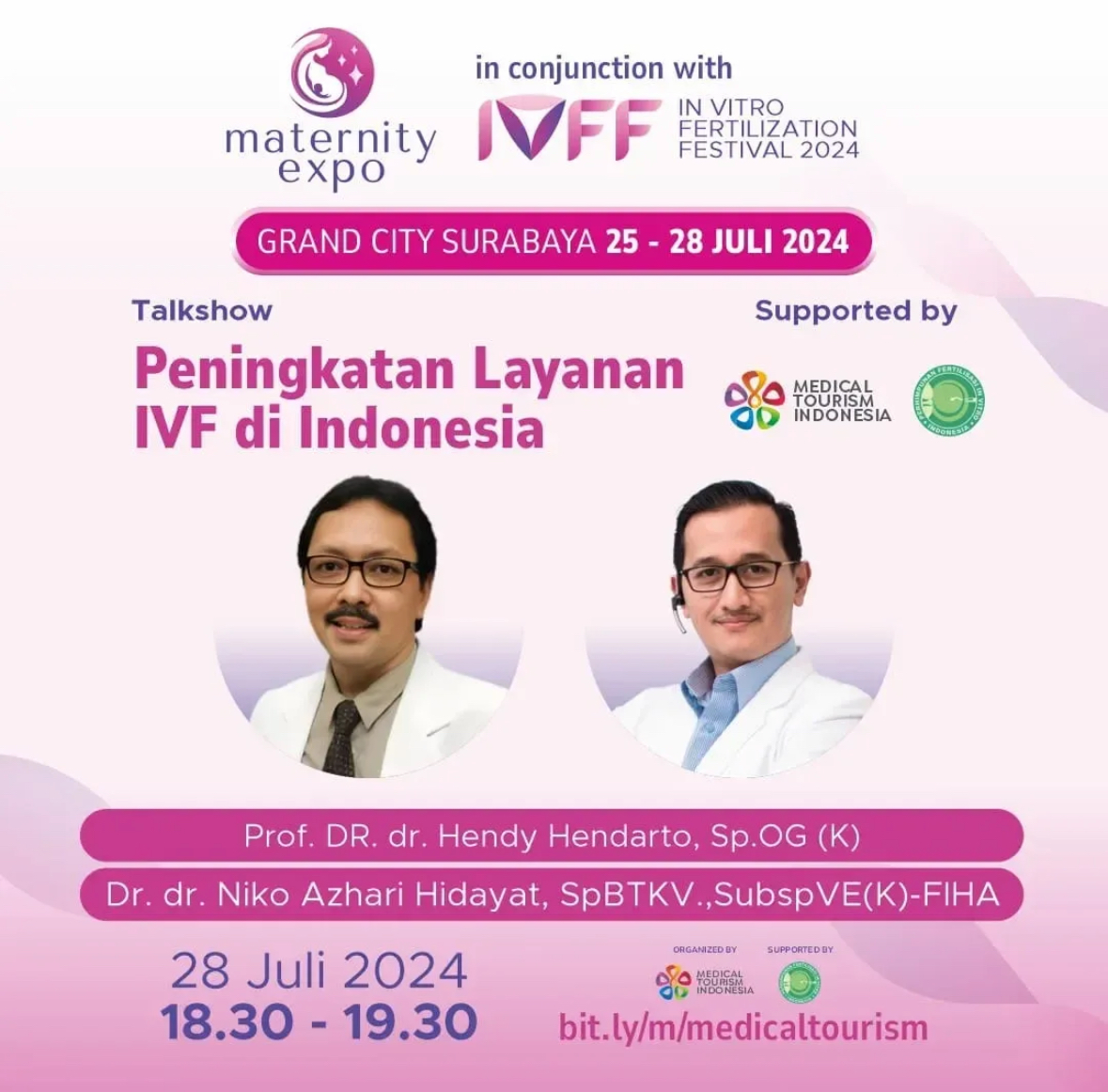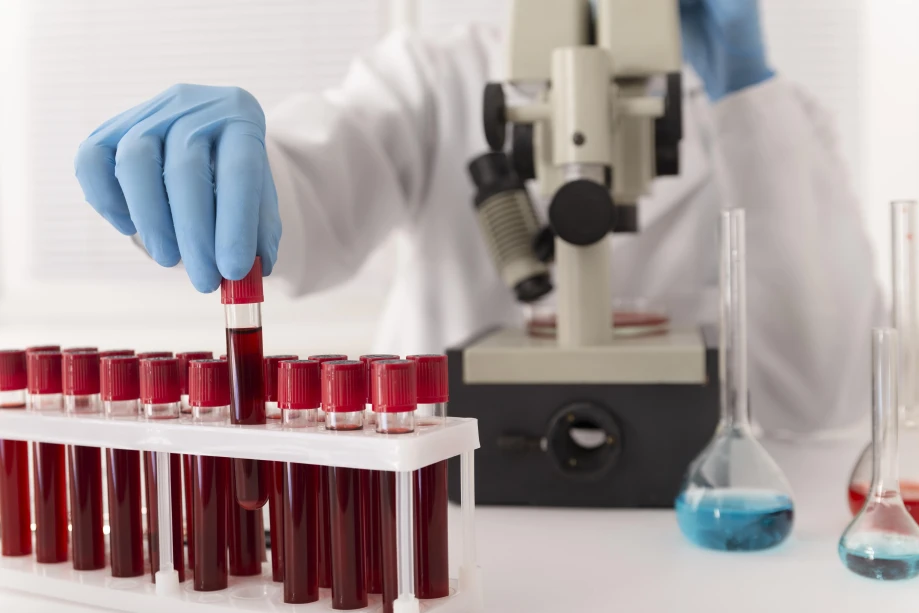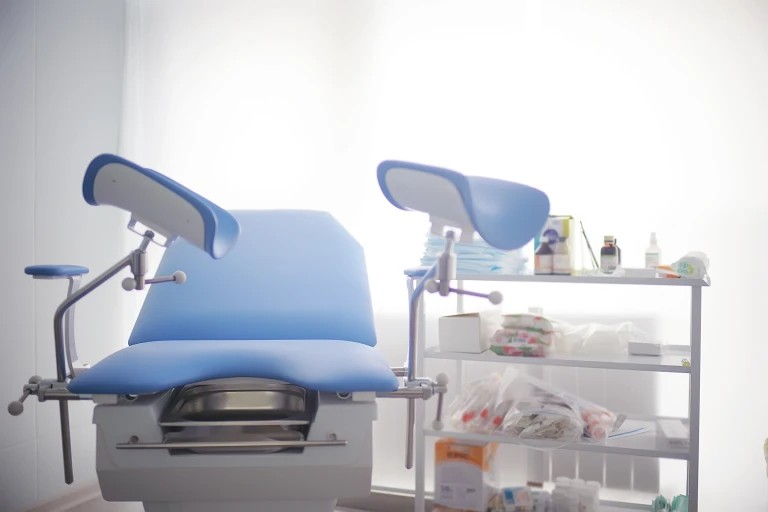For many couples dreaming of having a child, IVF becomes a hope and an important support on the path to creating a family. In Indonesia, more and more families are choosing this method to overcome challenges and fulfill their dream of having a baby when natural conception is impossible.

IVF is not just a medical procedure, but also a significant part of life, connected to various social and cultural issues.
IVF (in vitro fertilization) is a method in which fertilization occurs outside the woman’s body, in laboratory conditions. The procedure is carried out in several steps: first, the eggs are collected, then they are fertilized with sperm in the laboratory, embryos are grown, and afterward, one or more embryos are transferred into the uterus for further development.
Dr. Hendra, a reproductive gynecologist from Kasih Ibu Hospital, explained in detail in what cases IVF should be considered and which tests need to be done before the procedure.
To understand if you need this procedure, you must first consult a reproductive specialist. He may recommend IVF in the following cases:
- - Tubal problems: Blockage or absence of fallopian tubes.
- - Male infertility: Poor sperm quality.
- - Endometriosis: Tissue growing outside the uterus.
- - Hormonal disorders: Ovulation issues or weak ovarian function.
- - Age: After 35, the chances of conception decrease.
- - Unexplained infertility: No identified cause, but conception does not occur.
- - Immune problems: The body rejects sperm or the embryo.
- - Genetic diseases.
What tests need to be done before IVF?
For women:
- - Hormone tests to check ovarian function and hormonal balance.
- - Ultrasound of the pelvic organs to assess the condition of the uterus and ovaries.
- - Infection tests (e.g., HIV, syphilis, hepatitis, chlamydia, and others).
- - Assessment of fallopian tube patency.
- - Blood clotting test.
- - General blood test and biochemistry to assess overall health.
For men:
- - Semen analysis to evaluate sperm quality and mobility.
- - Infection tests, similar to those for women.
- - Hormone tests to check testosterone and other important hormone levels.
In Bali, there are several places where you can take all the necessary tests for IVF. These include major hospitals like BIMC Hospital and Kasih Ibu Hospital, as well as the independent laboratory Prodia.
Only after all these tests the doctor will be able to get a complete picture of your health and determine if the procedure is suitable for you. The tests will help identify possible causes of infertility and assess the chances of success. Based on the results, the doctor will be able to offer an optimal treatment plan and provide recommendations on how best to prepare for the procedure.
The first successful IVF procedure was carried out in 1978 in the UK. The birth of Louise Brown became a global sensation, and since then, the technology has rapidly developed. Today, millions of children around the world have been born through this technology.
What is the situation with IVF in Indonesia?
In Indonesia, the largest Muslim country in the world, IVF is permitted and widely used, but under strict conditions. In 2015, the Indonesian Council of Ulema (Majelis Ulama Indonesia, MUI) issued a fatwa establishing the following rules for IVF:
- The procedure is allowed only for legally married couples.
- Fertilization and embryo implantation must occur during the period of marriage.
- The use of donor eggs, sperm, or embryos is prohibited.
- Surrogacy is not allowed.
These rules apply to everyone, including foreign patients.
Thus, even if you come specifically for IVF treatment, you need to consider that services like egg donation or surrogacy will not be available in this country.
Besides Islam, IVF holds special significance in other religions. For example, the Catholic Church generally does not approve of "test-tube conception," especially if it involves the use of donor materials or leads to the destruction of embryos.
Dr. Nico Azhari Hidayat, MD, and CEO of Medical Tourism Indonesia, noted: "Indonesia is on par with other countries in terms of medical services. We want to support the government’s program to develop medical tourism and healthcare in Indonesia, as well as draw society’s attention to pregnancy and IVF programs and the available solutions in Indonesia."
Key IVF clinics and centers in Indonesia:
1. Morula IVF Indonesia — one of the leading IVF clinics in Indonesia, with branches in Jakarta, Surabaya, Bali, Medan, and other major cities. The clinic offers a full range of infertility treatments, including IVF, ICSI (intracytoplasmic sperm injection), and embryo freezing.
2. Bunda Hospital IVF Center — one of the first IVF centers in Jakarta, known for its successful results and qualified specialists. The center offers modern infertility treatments such as IVF, ICSI, and insemination.
3. SamMarie Basra— a clinic in Jakarta specializing in reproductive medicine and IVF. They offer personalized treatment programs and support couples through every stage of the process.
4. Family Fertility Center (FFC) — a clinic in Bali offering IVF services and other infertility treatments. The center is known for its attention to detail and comprehensive approach to patient care.
5. RSCM Kencana IVF Center — a center in Jakarta that is part of a state medical university. It offers IVF services as well as research and training in reproductive medicine.
6. Kasih Ibu Bali, in partnership with Monash IVF Group — an Australian network of clinics specializing in IVF and reproductive medicine. Known for its achievements in reproductive technology, it offers services across Asia.
7. BROS Fertility Center — a clinic specializing in IVF and reproductive medicine.
Many clinics also offer patient support programs, including psychological counseling, nutritional consultations, and stress management programs, helping couples successfully navigate the IVF process.

The cost of an IVF program in Indonesia varies depending on the clinic, chosen procedures, and additional services, but on average ranges from 70 to 150 million Indonesian rupiah (approximately 4.5–9 thousand US dollars).
Every year in Surabaya, the “Maternity Expo” is held as part of the IVF festival, organized by Medical Tourism Indonesia. This event is supported by the Indonesian IVF Association (Perfitri) and leading clinics, demonstrating that Indonesia provides quality pregnancy and IVF services without the need to travel abroad.

The expo features various clinics and renowned hospitals, offering attractive programs such as artificial insemination starting at 13 million rupiah and IVF starting at 50 million rupiah.
This important event helps people learn more about available medical services and supports the development of medical tourism in the country.
One of the most well-known and top clinics in Indonesia for successful IVF cases is Morula IVF.
Choosing a country for IVF is an important decision for those planning to have a child. All couples want high chances of success and comfortable conditions. If you are considering Indonesia, there are several factors to take into account.
Pros and Cons of IVF in Indonesia
First, the cost of the procedure is significantly lower compared to Europe and the USA, making it more affordable for couples struggling with conception. Second, cities like Jakarta, Surabaya, and Denpasar have modern clinics with good equipment that can offer quality treatment. Third, the mild climate and peaceful atmosphere, especially in Bali, create comfortable conditions for recovery after the procedure, reducing stress levels.
However, despite these advantages, there are important drawbacks to consider. Indonesia has strict laws, as mentioned earlier, which can be a serious limitation for many. Additionally, there are fewer experienced IVF specialists in the country compared to nations with more advanced medical systems, such as neighboring Thailand and Malaysia.
Moreover, not all clinics are equipped with the most modern technology, which could affect the success of the procedure. Another factor is the language barrier, as not all medical facilities provide English-speaking services.

Advantages of IVF in Thailand and Malaysian
- - Better equipment.
Clinics in Thailand and Malaysia are equipped with more modern technologies, increasing the success rate of the procedure.
- - More specialists.
These countries have more experienced doctors and follow international standards of care.
- - Donor programs.
Egg and sperm donation are allowed in Thailand and Malaysia, expanding options for patients.
- - Fewer legal restrictions.
Clinics in Malaysia:
- Alpha IVF & Women’s Specialists (Kuala Lumpur)
Known for high success rates in IVF.
- KL Fertility Centre (Kuala Lumpur)
Renowned in the region as one of the best infertility treatment clinics with excellent success rates.
- Sunfert International Fertility Centre (Kuala Lumpur)
Thailand:
- Bangkok IVF Center (Bangkok)
One of the most well-known clinics in Thailand, offering a full range of infertility treatments.
- Jetanin Institute for Assisted Reproduction (Bangkok)
- BNH Hospital Fertility Center (Bangkok)
Cost of IVF in Southeast Asia
- Indonesia: $2,600 to $6,500 USD per cycle.
- Thailand: $4,000 to $6,000 USD per cycle.
- Malaysia: $3,500 to $5,500 USD per cycle.
Prices may vary depending on the clinic, additional services needed, and medical medications.
If modern technologies and treatment flexibility are important to you, it's better to choose Thailand or Malaysia, where there are more experienced doctors and fewer restrictions. If cost is your main priority, Indonesia offers more affordable prices but with stricter rules and limitations. The choice depends on your needs and resources.




You can add one right now!